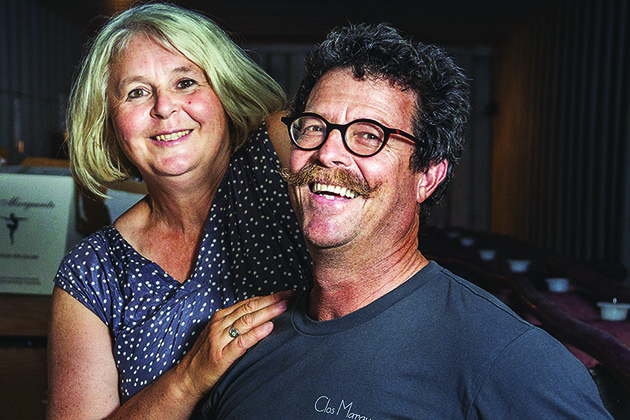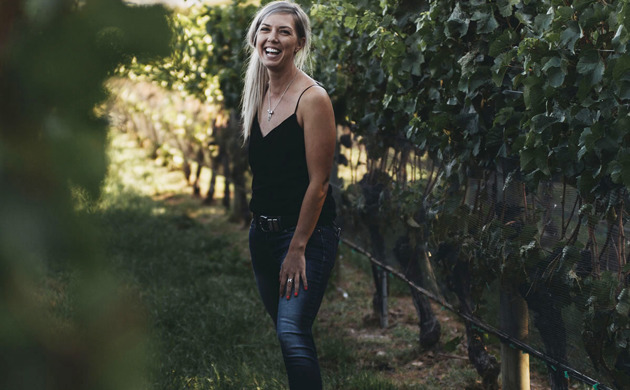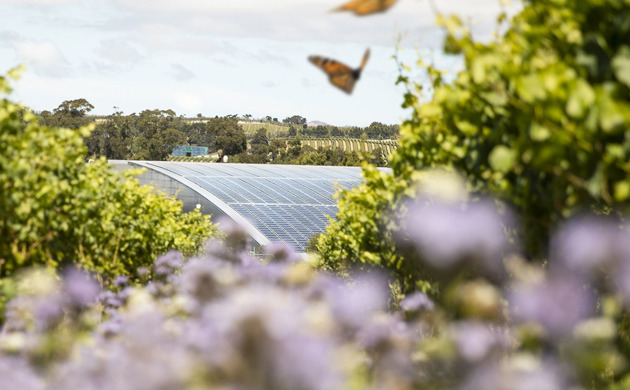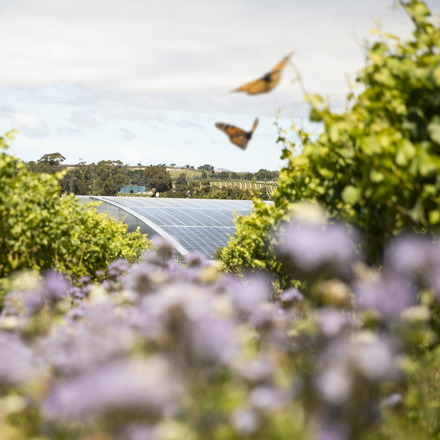Sophie Preece

Jean-Charles and Marguerite Van Hove are harnessing the sun to fight climate change, with a three-year transition to electric vehicles, irrigation and hot water, all powered by solar.
From a relatively small roofline of panels at a relatively remote vineyard in the Awatere Valley, Clos Marguerite is now hardly on the grid, with plans for an electric tractor and winery refrigeration next on Jean-Charles’ hit list.
“The real battle is climate change,” he says of his decision to reduce the footprint of his operation. “If we miss this one, if we can’t turn the boat, then there are not many other battles that are worth fighting, I think.”
The couple’s first step was a hybrid car for Marguerite’s sales trips, then an electric pump in the river, which involved bringing in power, among other complications. Finally, there was a fully electric car, with a range of 220km.
“During that process, I thought, ‘well what we should do is produce power here,’ and so we looked at the solar panels.” It took some time to find a tradesperson to work so far from town, “but we got someone, and he’s been very good”, he says.
The system uses a 10kW converter, despite the panels achieving 12.8kW. That ensures redundancy in the panels, meaning more output I the morning and evenings, reducing the usual bell curve of solar production, he says.
As it is not valuable to return power to the grid, Jean-Charles uses software that manages the load, putting the first low levels of power into hot water, before charging the cars. “Once the cars are full, we start exporting (to the grid) again and if we export more than 7.5kW then the irrigation starts on its own.”
When he has optimised his operations to include the glycol system for the refrigeration of wine over summer, surplus power would be used for irrigation or refrigeration, with less offloaded to the grid.
Jean-Charles has done the numbers to weigh the pros with the cons, including the heavy environmental cost of electric cars, due to the rare elements used in the batteries. By the outcomes are still well in the positives, especially in smaller electric cars, he says.
This story ran first in the February 2019 edition of Wine Marlborough’s Winepress magazine and the April/May 2020 edition on New Zealand Winegrower. Read more articles here.







